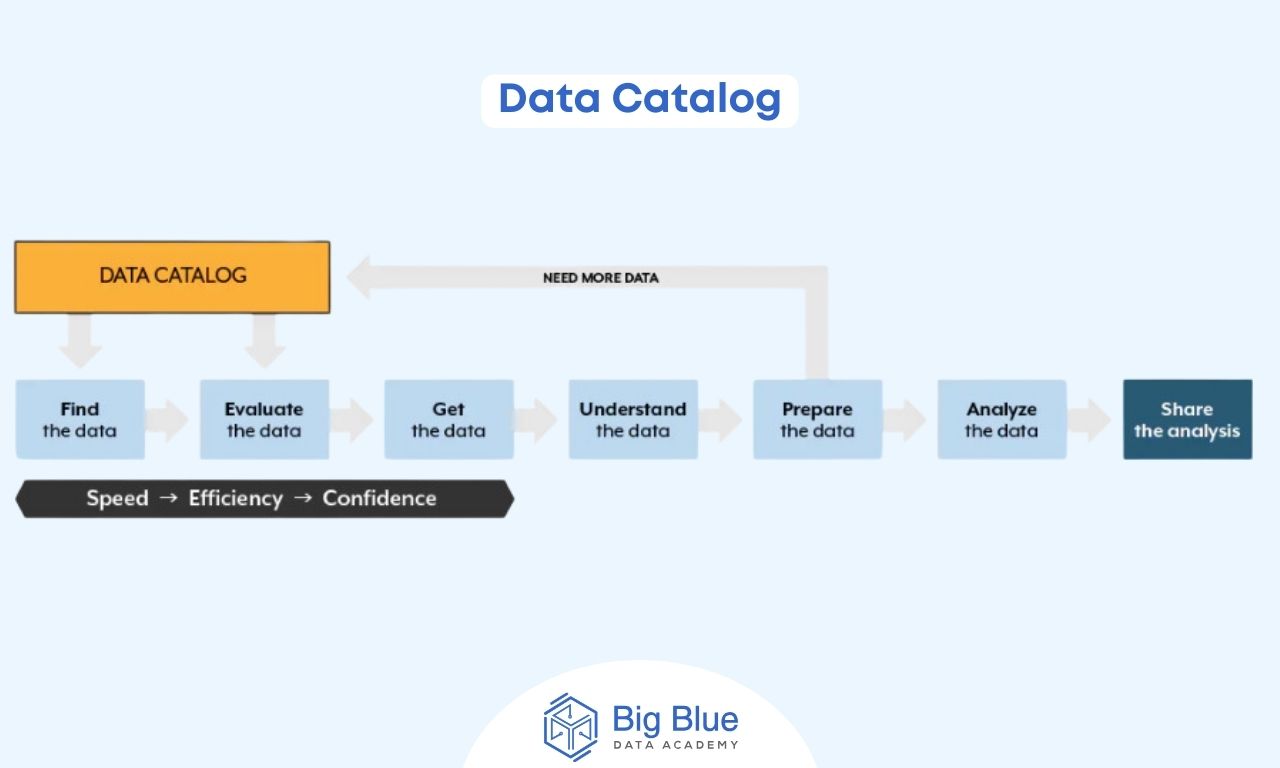Data Catalog: Definition, Benefits & Characteristics
In recent years, the volume and complexity of data have increased rapidly, making it imperative for modern businesses and organizations to manage them efficiently and effectively.
Companies that have implemented data catalogs have observed significant improvements both in data management ease and in the quality of data analysis available to them.
In today's article, we will explore in detail:
- What is a data catalog?
- What are its key features?
- What are its advantages?
But before we delve deeper, let's start with a basic definition.
What is a Data Catalog;
A data catalog is a central repository that provides a comprehensive and detailed list of all the data available within an organization.
It consists of metadata, combined with data management and search tools, to help data analysts and other team members find the data they need.
It provides information about the suitability and usage of the data, playing a significant role in data governance by ensuring data quality and security for business use.
Below, we have summarized the key characteristics of a data catalog.
Key Characteristics of a Data Catalog
The key characteristics of a data catalog include:

Search Capability
Data analysts and BI analysts can quickly and easily search for data based on criteria such as data names, tags, and metadata.
Data Management
A data catalog integrates with broader metadata management systems, providing customized and efficient management.
Data Lineage
A data catalog can track and trace the origin, transformations, and usage of data over time, aiding in understanding the data's history.
Data Quality and Governance
A data catalog can incorporate various tools for quality checks and governance policies, ensuring data compliance with regulations and standards.
Integration with Data Processing Tools
Additionally, a data catalog, through integration with data processing and analysis tools, provides enterprise members with direct access to and analysis of data straight from the catalog.
Now that we've covered some basics about the data catalog and its features, let's look at the advantages it offers through its use.
Key Advantages of a Data Catalog
The implementation of a data catalog within a business or organization can offer the following advantages:

Advantage #1: Improved Data Discovery and Localization
A data catalog provides improved discovery and localization of datasets, various files, and data sources in a direct and easy manner. Data analysts can view all available datasets, evaluate them, and make informed choices for preparation and analysis.
Moreover, they can access and query data directly from the catalog.

Advantage #2: Increased Productivity
Data catalogs, by providing a unified repository of data resources and the necessary environment, reduce the time spent searching for data and make the data unification process smoother. This enhances the efficiency and productivity of the business, providing a significant competitive advantage.
Advantage #3: Facilitation of Collaboration
Ένα data catalog παρέχει μια πλατφόρμα για συζήτηση, σχολιασμούς και σχόλια σχετικά με τα στοιχεία των δεδομένων. Έτσι διευκολύνεται σημαντικά η συνεργασία και η ανταλλαγή γνώσεων.
Advantage #4: Enhanced Regulatory Compliance
Embedded data management, quality, and security features in a data catalog contribute to creating reliable datasets for business analysis. Simultaneously, access controls and governance policies enhance compliance with data privacy laws and other regulations.
In Summary
We've covered what a data catalog is, its key characteristics, and the advantages it offers. Implementing a data catalog within a business or organization can significantly improve data management and decision-making processes, making data readily accessible.
Data science is an emerging field gaining more ground, and for this reason, at Big Blue, we've created a wide variety of articles for you to explore!


.jpg)